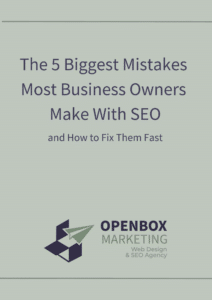Don't let SEO mistakes hinder your business's online success. Download our FREE guide today and unlock the strategies to optimise your visibility and avoid common pitfalls. Take charge and get your guide now!

In the bustling world of WordPress, themes are like the outer armour of your website. They not only determine its look and feel but also play a crucial role in its security. But with so many options available, how do you choose wisely? Let’s explore the realm of WordPress themes and their impact on your site’s security.
Are Free WordPress Themes Safe?

Free WordPress themes are like the free samples at a food market—tempting and convenient. But just like those samples, ensuring they’re safe before diving in is crucial.
Vetted vs. Unvetted:
Vetted themes from reputable sources like the official WordPress repository are generally safe. These themes undergo a review process, where experts check for security vulnerabilities and quality standards.
Unvetted themes, on the other hand, come from various sources, including third-party websites. While many are safe, some may contain malicious code or vulnerabilities. It’s essential to research thoroughly before installing an unvetted theme.
Update Frequency:
Safe themes are regularly updated to patch security holes and improve functionality. Before choosing a free theme, check its update history. Themes with frequent updates are more likely to address security issues promptly.
User Reviews and Ratings:
User reviews and ratings offer valuable insights into a theme’s safety and performance. If a theme has mostly positive feedback, it’s a good indicator of its safety.
In summary, free WordPress themes can be safe, especially when sourced from trusted repositories and developers. However, due diligence is key to ensuring their security.
Are All WordPress Themes Safe?
While WordPress itself is secure, not all themes are created equal. Premium themes from reputable developers often undergo rigorous testing, making them generally safer than free options. These themes usually come with dedicated support and regular updates, adding an extra layer of security.
However, even premium themes can have vulnerabilities if not kept up to date. It’s essential to update your theme to patch any security holes regularly.
Custom themes are another option. These are tailor-made for your website, offering a unique design. However, they require proper development and ongoing maintenance to ensure security.
Can Free WordPress Themes Hurt My SEO?

Your website’s search engine optimisation (SEO) is like its visibility cloak in the vast digital world. So, how do free themes affect this crucial aspect?
Quality Matters:
The quality of a theme can impact SEO. Free themes with clean code, fast loading times, and mobile responsiveness can boost your SEO efforts.
Optimisation and Features:
Some free themes lack SEO optimisation features. Premium themes often come with built-in SEO tools, making it easier to optimise your site for search engines.
Bloatware and Speed:
Free themes may come with unnecessary features and bloatware, slowing down your site’s loading speed. Page speed is a crucial SEO factor, so choose a theme that prioritises performance.
Code Structure:
Well-coded themes with proper headings, meta tags, and schema markup can positively impact SEO. Free themes vary in their code quality, so choose wisely.
Free WordPress themes can be safe and won’t necessarily hurt your SEO. However, it’s essential to choose themes from reputable sources, ensure regular updates, and consider factors like code quality and optimisation.
Whether you opt for a free or premium theme, remember that security and SEO go hand in hand. A well-chosen theme not only protects your site but also helps it shine in the eyes of search engines.
Share this Article

Julian Demerre
Julian has been a web developer since 2013, focusing primarily on WordPress websites. A rare plant enthusiast who loves to cook, is addicted to coffee and has worked as a freelance photographer. He has been published in photography magazines and is now sharing his knowledge of web technology.






